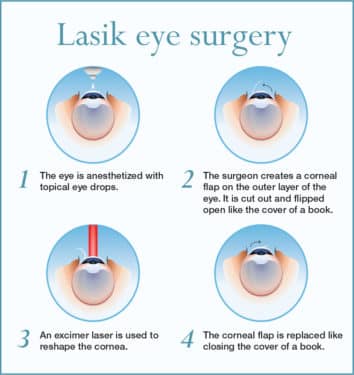The Ultimate Frequently Asked Question On Refractive Lens Exchange: Every Little Thing You Required To Know
The Ultimate Frequently Asked Question On Refractive Lens Exchange: Every Little Thing You Required To Know
Blog Article
Difference Between EVO ICL And Ipcl Surgery Composed By-Nissen Goldstein
If you're considering refractive lens exchange, you possibly have a great deal of questions. This treatment could change exactly how you see the world, providing advantages like lowered dependancy on glasses. Nevertheless, it's essential to recognize the process, threats, and who qualifies as a great candidate. Let's discover these critical elements so you can make an enlightened decision about whether RLE is right for you.
What Is Refractive Lens Exchange and How Does It Work?
Refractive lens exchange (RLE) is a procedure created to replace your eye's all-natural lens with a synthetic one, fixing vision problems like nearsightedness, farsightedness, or presbyopia.
During the procedure, your surgeon makes a tiny laceration in the eye, eliminates your natural lens, and inserts an intraocular lens (IOL) customized to your vision needs. This outpatient surgery commonly takes around 15 to half an hour per eye and is done under neighborhood anesthesia.
You'll likely notice enhancements in your vision nearly quickly, though complete recovery may take a few weeks. RLE is particularly helpful for those over 40 or with high prescriptions, providing a long-lasting remedy compared to glasses or call lenses.
Your eye care professional can assist establish if RLE is right for you.
What Are the Advantages and Dangers of Refractive Lens Exchange?
Picking refractive lens exchange can bring about significant renovations in your vision, but it is essential to evaluate both the benefits and dangers before making a decision.
On the bonus side, this procedure can boost your sight by correcting problems like presbyopia, nearsightedness, and hyperopia. Many people appreciate minimized dependancy on glasses or get in touch with lenses, which can greatly boost their quality of life.
However, it's critical to think about possible risks. Difficulties can consist of infection, glare, or halos around lights.
There's also a fantastic read of overcorrection or undercorrection, which might call for extra treatments.
That Is a Suitable Candidate for Refractive Lens Exchange?
If you're taking into consideration refractive lens exchange, it is necessary to recognize whether you fit the profile of an ideal candidate. Generally, you may be a great prospect if you're over 40, experience presbyopia, or have high degrees of nearsightedness or farsightedness.
It's likewise vital that your vision is stable, implying your prescription hasn't changed dramatically in the past year. If you have cataracts or other eye conditions, you may benefit from this procedure too.
Nonetheless, specific factors, like unchecked diabetes mellitus or autoimmune diseases, might invalidate you. To determine your candidateship, speak with an eye care specialist who can examine your certain scenario and advise the best strategy customized to your requirements.
Conclusion
In conclusion, refractive lens exchange can be a transformative choice for boosting your vision, especially if you're over 40 or have a high prescription. While the advantages are considerable, it's essential to weigh the risks and talk to your eye treatment specialist to determine if you're a suitable prospect. With the appropriate information and support, you can make a notified choice and perhaps take pleasure in a life with minimized dependancy on glasses.
